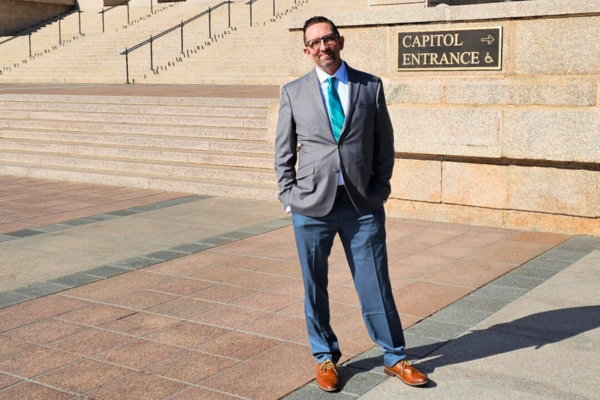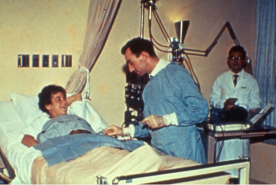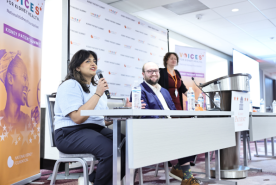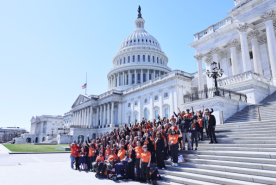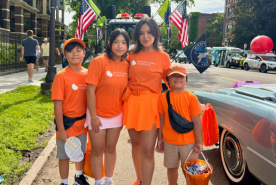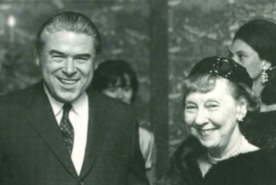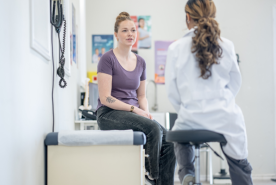November 08, 2024
Polycystic kidney disease (PKD) runs in Gene Blankenship’s family. As citizens of the Cherokee Nation, all receive care from the Cherokee Nation Health Services (CNHS). Despite access to quality healthcare, Gene watched his relatives struggle with the disease over the years. He knew PKD might be in his own future but that never stopped him from living his life to the fullest.
A Family History
Polycystic kidney disease (PKD) is a genetic disorder where fluid-filled cysts grow in the kidneys. PKD can lead to kidney failure and other health problems.
“I remember my dad’s dialysis treatments and healthcare visits,” Gene shared. “Both he and my grandfather passed away from PKD when I was young. Other family members also dealt with it. I realized early on that our family faced challenges others didn’t.”
Knowing that their risk of developing PKD was high, Gene’s family did what they could to stay healthy.
“We’ve been taught since childhood to eat the food we grow, raise, and catch,” Gene explained. “I’ve always preferred natural foods over processed ones.”
Gene built a career in local government and started his own family. In 2003, during a camping trip with the Muskogee County Sheriff’s Department, things took an unexpected turn.
“I hit my leg on a tow hitch,” Gene said. “It looked bad. The next day I went to a clinic expecting treatment for my injury. But during the visit, I learned my blood pressure was dangerously high.”
Shortly after, Gene was diagnosed with PKD. He started blood pressure medication and continued living as healthily as possible.
A Slow Decline
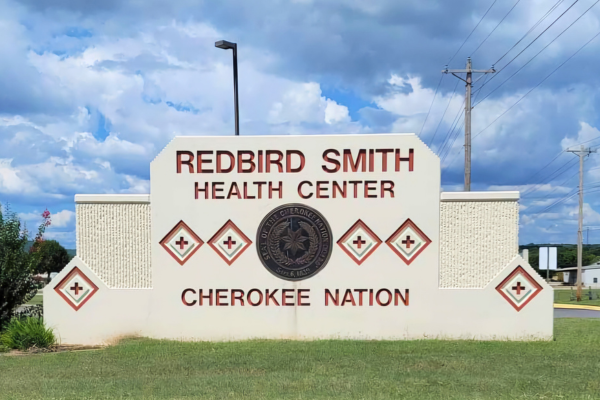
Gene wasn’t shocked by the diagnosis, but it marked the beginning of the end for his kidneys.
“Most of my family members struggle with this diagnosis, so it wasn’t a surprise. It was just another stumbling block I had to get over,” Gene said. “I watched my kidney function slowly decline during the next 14 years.”
In late 2018, his kidney function suddenly took a sharp dip.
“Kidney failure wasn’t far away. My family and I began training for home hemodialysis. Because of nationwide staffing shortages, the training was cut short” Gene said. “I received in-center dialysis at Redbird Smith Health Complex on the Cherokee Nation Reservation.”
The staff at the dialysis center played a big role in Gene’s care.
“I cannot praise the techs, nurses, social workers, nutritionists, and administration enough,” Gene said. “They treated me like family. I still view them as family today.”
Gene got on the kidney transplant waitlist shortly after starting dialysis. He received four calls about potential kidneys that fell through before the fifth and final call in 2024.
“While disappointing, it is common for the transplant team to alert you about a potential match and then decide against the kidney. My wife and I refer to those calls as trial runs for the real surgery,” Gene said. “The right kidney became available for me in 2024.”
Join the NKF Blog Newsletter
Get inspirational stories and kidney disease resources delivered to your inbox every month. You'll gain practical insights and expert advice to help you better understand and manage your kidney health no matter where you are on your kidney journey. Subscribe today.
A Second Chance
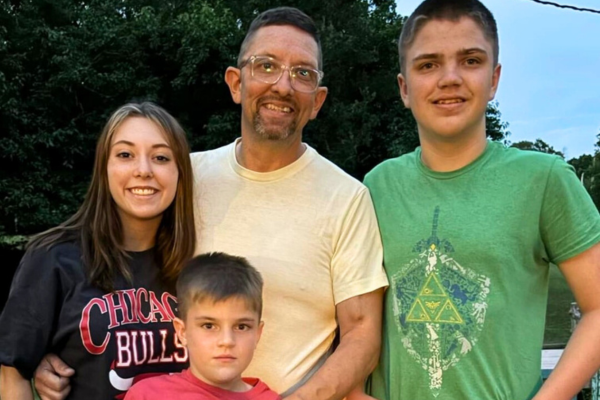
Finally, Gene got the call he’d been praying for.
“It was a high-risk kidney. This means it scored high on the kidney donor profile index (KDPI). The lower the score, the better,” Gene said. “All potential recipients can consent to receive offers of high KDPI kidneys, as I did. These could be kidneys from someone who spent time in jail, had a drug issue, or had a condition that may lessen the lifespan of the kidney.”
Gene decided to take the leap.
“The kidney had hepatitis B antibodies, meaning the donor was exposed to hepatitis B, a viral infection that attacks the liver. I was nervous but understood having antibodies in me didn't necessarily mean the virus would become active.”
If the virus becomes active, there are treatment and management options available to help Gene stay healthy and prevent transmission to others.
“I trusted my inner voice and decided to move forward,” said Gene. “Now, I have a kidney, and my body is immune to hepatitis B.”
But recovery took time.
“I spent a month in the hospital resting and recovering while the doctors tried to find the right balance of anti-rejection medications,” Gene said. “I had nausea and issues vomiting, which caused my transplant incision to come undone. Another surgery fixed that issue.”
Three months later, Gene felt like a new person.
“My color and energy returned. I hadn’t realized how much I was struggling with fatigue and nausea every day until my new kidney started working properly.”
There was still one more issue—his original kidneys were too large to stay in his body.
“I scheduled a double nephrectomy for March 15th, 2024,” Gene said. “I could have done it sooner, but I waited to learn the fate of a piece of legislation I was working on. The legislature unanimously passed it, naming March as Oklahoma Kidney Disease Month.”
Gene woke up from his nephrectomy surgery around 60 pounds lighter.
“Each kidney weighed between 25 and 30 pounds,” Gene explained. “It was a big adjustment for my body, but my health is better than ever.”
Gene credits much of his success to the Cherokee Nation’s healthcare system.
“Chief Hoskin, Deputy Chief Warner, and their predecessor Chief Baker prioritized expanding healthcare facilities and resources for Cherokee Nation citizens,” Gene said. “Cherokee Nation has the largest tribally-operated healthcare system. They made all the difference in my care.”
Advocating for Kidney Health
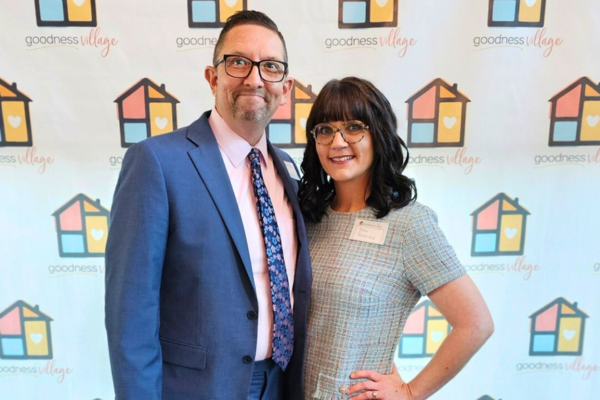
Oklahoma Kidney Disease Month isn’t the first or last piece of legislation Gene has worked on.
“My interest in politics began in 1992. I started building relationships with local and state politicians,” Gene said. “National Kidney Foundation was the first kidney advocacy group I joined. I use my connections to push for kidney health legislation.”
Gene encourages everyone to get involved in advocacy, no matter where they are in their kidney journey.
“There is never a convenient time to advocate. Jump in! Get involved by talking to your elected officials and their assistants. Our legislators need to understand what kidney patients go through. That’s where you come in—build relationships and share your story.”
For Gene, advocacy is about more than just passing laws—it’s also about building connections.
“Advocating is rewarding,” Gene said. “It’s bringing people together and watching them find their voice. It’s seeing people flourish and become more empowered.”
Want to make a difference like Gene? Become a Voices for Kidney Health advocate today.
